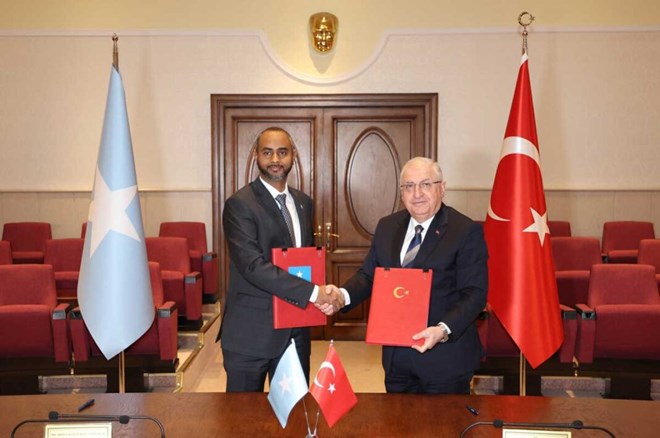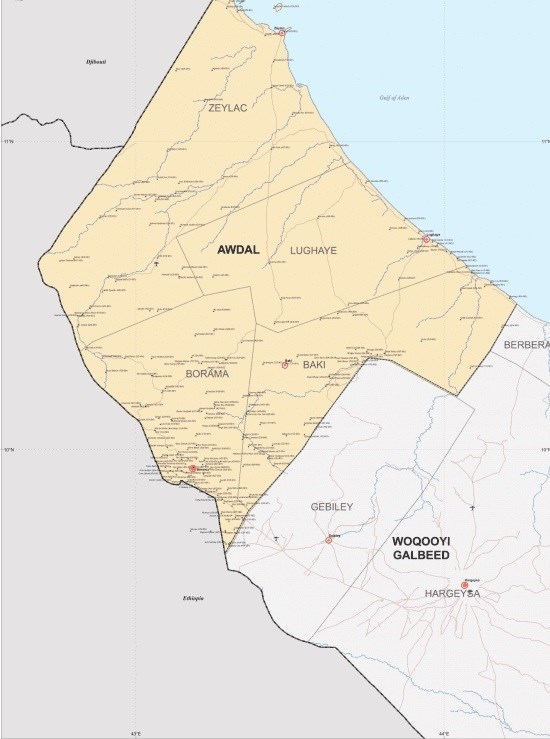Saturday March 23, 2024
By Aman Obsiye

If Somalia were a tree, then Zeila is her roots. Zeila (also spelled Saylac) is a coastal city in the north-western Awdal region of Somalia.
Somalis are believed to be one of the first Africans to have made contact with the Muslim world via Zeila. During the Hijrah, the Sahaba made a stop in Zeila and this is how Islam spread through the Somali Peninsula. One of Africa’s oldest masjid, Masjid al-Qiblatayn, is located in Zeila. This masjid’s name is derived from the fact that it has two mihrabs, one pointing towards the initial direction of prayer, Jerusalem, and another one pointing towards Mecca.
In the 15th century, Zeila served as the capital of the Adal Sultanate. The Adal Sultanate was the Ottomans’ main ally in the Horn of Africa, becoming their principal trading partner in the Red Sea.
Fast-forward to the 21st century and Türkiye is Somalia’s preeminent ally in the world. The security of any nation depends on the strength of its allies, and it has been proven that the Turks and Somalis genuinely have an historic alliance.
This is reflected in the Defense and Economic Cooperation Framework Agreement recently signed between the two nations. This agreement fuses their shared geoeconomic and geopolitical interests in the Horn of Africa and Red Sea, by providing strategic depth to Turkish-Somali relations. The agreement seeks to enhance Somalia’s defense capabilities of its 3300km coastline, while simultaneously investing in its maritime resources, from offshore oil and gas, to fisheries, to commercial and naval ports.
This agreement comes at a time when Somalia’s territorial integrity and sovereignty is being tested by Ethiopia, via its announcement of an illegal MOU agreement with Somaliland – a secessionist entity within Somalia. The MOU grants Ethiopia twenty kilometers of coastal land in the Awdal region to build a navy, in exchange for Ethiopia recognizing Somaliland as a sovereign state.
Ethiopia has historically wanted Awdal’s coastal lands. On May 10, 1949, Ethiopia authored a diplomatic letter to the United Kingdom asking for the “cessation of territory in the Zeila area to Ethiopia,” but this proposal was rejected. During the Trusteeship era, Ethiopia vehemently opposed the United Nations’ plan to create an independent Somali nation-state.
In 1960, upon Somalia’s independence, Abdi Hassan Buuni, an MP from the Awdal region, was selected as Somalia’s inaugural Deputy Prime Minister. This wise decision by President Aden Adde sent a strong message to Ethiopia, and the world, that Awdal was part and parcel of Somalia. In 1964, four years after Somalia gained independence, Ethiopia launched an offensive war against the nascent nation-state. After two months of war, Sudan persuaded Ethiopia to cease its war effort against Somalia. In 1984, the Ethiopian Airforce launched a vicious assault against Awdal’s largest city, Borama, killing forty innocent school children. It’s evident that Ethiopia has harbored historical animosity towards Somalia in general, and Awdal in particular.
Awdal’s potential cannot be understated nor underestimated. It strategically sits at the entrance of Bab el-Mandeb, and its coast can serve as a entrepôt for trade between the greater Middle East and Africa. Zeila is only 40km from Djibouti and less than 350km distance from populated cities of Ethiopia, such as Harar, Jigjiga and Dire Dawa. Prior to Somalia’s state collapse, Chevron was awarded onshore & offshore oil and gas concessions in Awdal. With a population of 700,000, it is one of the most densely populated regions in Somalia.
The closure of the Red Sea shipping lanes has created a global crisis, resulting in one of the greatest threats to the rules-based order. Securing Awdal’s coastline is of utmost importance not only to Somalia, but to all those who desire for the rules-based order to persist. It is without a doubt that the Red Sea is the current epicenter of new geopolitical rivalry. Through the Defense and Economic Cooperation Framework Agreement, Awdal can once again be a pillar for stability and prosperity. It is in Somalia’s and Türkiye’s interests that the port of Zeila be rebuilt, to give both nations a strategic advantage in the Red Sea and allow for favorable access to Afro-Asian trade.
Aman Obsiye is an attorney based in Minneapolis, MN. He received his Juris Doctor and Master of Public Policy degrees from the University of Minnesota.
